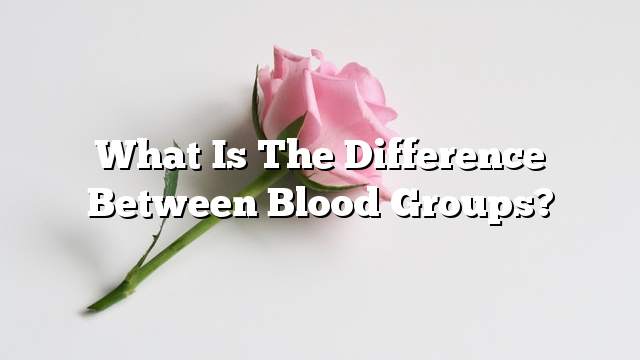Blood is composed of several basic components: red blood cells, white blood cells, platelets and plasma. Blood can then be defined as a combination of several components, and it plays several roles, such as supplying the body with the food it needs and carrying excess waste.
The four main blood groups are:
- Blood type A.
- Blood type B.
- Blood type of AB type.
- Blood type O.
The immune system is based on the production of proteins known as antibodies, which in turn protect the body if you notice the presence of foreign bodies and strange cells entering the body, and the reliance on the type of blood produced these objects.
Raysys factor Is an antigen found on the red blood cells, and has two types of negative and positive.
The eight blood types are:
- O Negative: Does not have a reiseasy factor.
- O positive: It has a reseasy factor.
- A Negative: Does not have a Raysie factor.
- A Positive: He has a Riseist factor.
- Negative B: Does not have a Raysie factor.
- Positive B: Has a Raysy factor.
- Negative AB: Does not have a Riseist factor.
- Positive AB: Has a Raysie factor.
O can give all other blood groups but only receive O, A can only give to A and AB, B can only be given to B and AB, AB can only be given to AB.
- The blood type carrying antibody A means that there are antibodies to the family B.
- The blood type carrying antibody B means that there are antibodies to A.
- The blood type carrying antibody A and B means that no antibodies to A or B.
- A blood type that does not carry antibody A or B means that there are antibodies to A or B.
informations:
- Blood is a gene.
- Blood groups are important, especially in blood transfusions.
- Many genetic diseases transmitted through blood can be identified by knowing the person’s blood type.
- O blood type positive is the most common type of blood types, while AB negative is the least common.
- Attention must be paid to the antigen of the person who will donate blood, and attention to the antibodies in the person receiving the blood.
